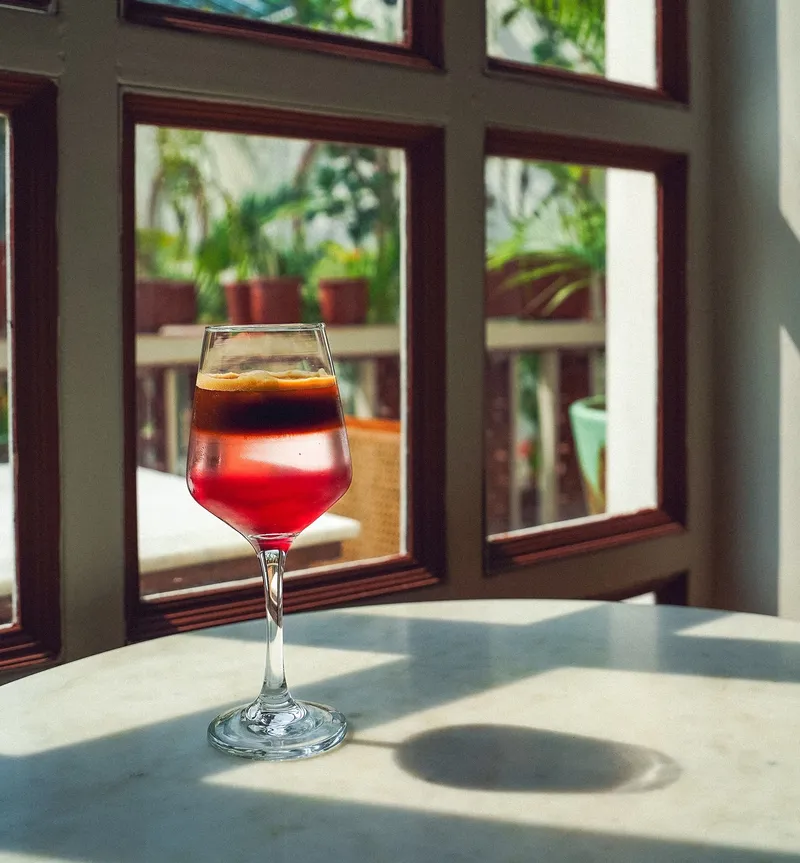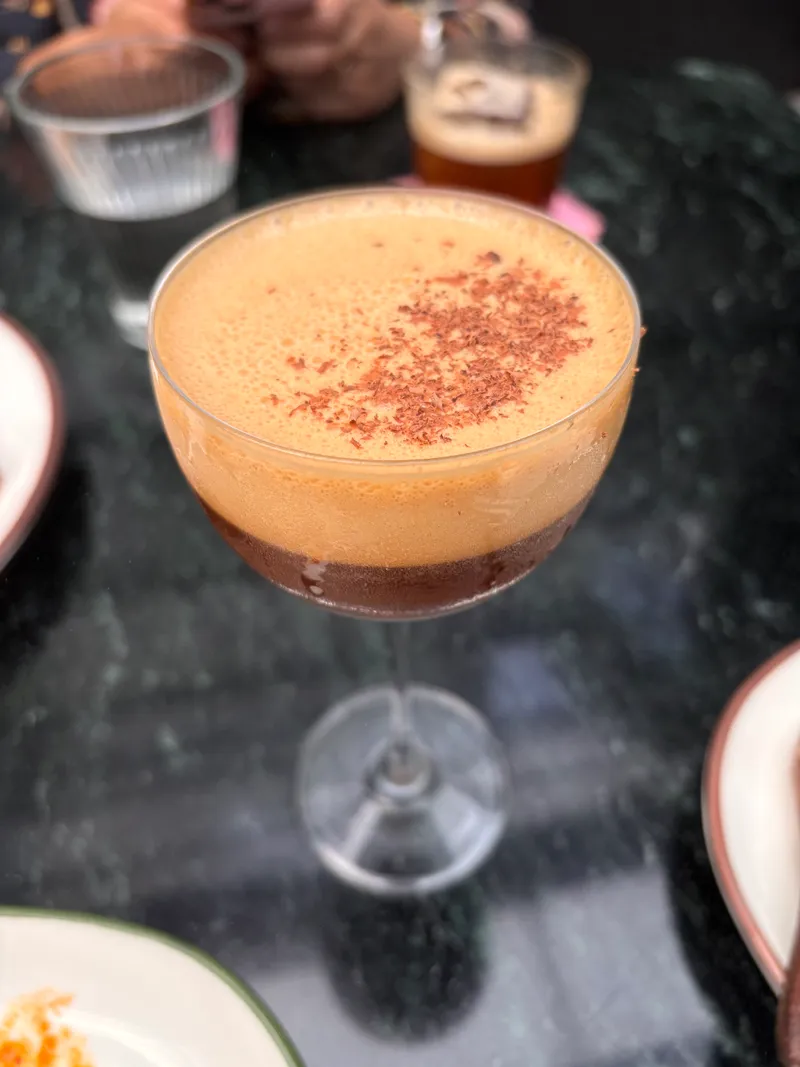From healthy variants to local and sustainable brews: Trends that will define coffee drinking in 2025
Specialty coffee brands, rise in cafés, and a focus on sustainability, there’s much that’s brewing in the coffee market in India. Here’s a closer look at what made noise in 2024 and the trends that will define the industry in 2025.
As a predominantly tea-drinking nation, coffee was once considered an ‘occasional treat’. However, over the last few years, there has been a shift towards coffee drinking in India, especially in urban areas due to higher disposable incomes, the influence of social media, and, of course, the availability of specialty coffee brands.
According to 2023 research by the Coffee Board of India, coffee consumption is primarily steered by India’s younger generation (25-34 years) who seek premium offerings and are willing to experiment with new varieties.
They are also the biggest advocates of coffee shops—spaces that have become a part of their cultural identity. Indian Coffee House introduced the pioneering concept in the 1930s. Since then, there have been several domestic and international coffee chains that have entered the Indian market—Barista, Café Coffee Day, Costa Coffee, Starbucks, Tim Hortons, and specialty coffee brands like Blue Tokai Coffee Roasters, Third Wave Coffee, Hatti Kaapi, and the like.

Source: Shutterstock
With so many factors at play, the coffee market in India is projected to grow by 1.12% (2024-2029), to reach a market volume of $592.70 million in 2029.
We take a look at some of the defining trends in the coffee market in 2024, also focusing on all that’s in store in 2025.
A look back at 2024
Greater liking for specialty coffee
While specialty coffee has been around for a while, 2024 saw a significant shift in people's perception of coffee.
“People wanted more than just caffeine—they wanted story and quality. Single-origin and microlot beans were everywhere, and even smaller cities started embracing specialty coffee culture,” says Shiv Dhawan, Co-founder, FirstCoffee.
Traceability became a key factor, as consumers valued knowing the journey of their coffee from farm to cup. “The unique stories behind each blend resonated deeply, making coffee a symbol of personal choice and sophistication, while local coffee farms and roasteries gained recognition for their dedication to excellence,” informs Ryana Kuruvilla, Head of People and Culture at Kelachandra Coffee.
Innovative Cold Brews
With India being a tropical country, we prefer colder beverages. Previously, the options were limited, says Nishant Sinha, Founder at Roastery Coffee House that has outlets across cities like Hyderabad, Kolkata, Delhi, and Jaipur, among others.

Roastery Coffee House's signature Cranberry Coffee
“This is until the world of exciting coffee blends started. Blends such as cranberry coffee and cold brews have become a rage.”
Innovations like nitrogen-infused variants and unique brewing techniques helped to deliver bold, refreshing coffee experiences. “The development of a cold brew filter and container makes it more convenient and fancy for the user,” says Baninder Singh, Co-founder at Savorworks Coffee and Chocolate.
Agrees Grace Muivah, Founder of Ngarum Farmer's Coffee, who believes cold brews have become a mainstream favourite, especially among younger consumers. “Iced coffee variations, in particular, have become a go-to trend, offering a refreshing and versatile option for all seasons.”
The Grab-and-Go Revolution
With busier schedules and urban lifestyles, grab-and-go cafés became the new thing. “Quick-service formats, app-based ordering, and compact, high-street locations made it easier for people to get their coffee fix,” says Dhawan.
At the same time, the demand for easy-to-brew options like pour-over boxes and cold brew packs grew.
Coffee in cocktails
The fusion of coffee and mixology emerged as a trend, with coffee-infused cocktails becoming a staple at upscale bars and restaurants, blending rich coffee flavours with sophisticated drink recipes, observes Singh.

Quaffine coffee liqueur
While Quaffine from Indie Brews and Spirits dominates the coffee liqueur space, there are some other players that have also made a mark. Last year, Uttarakhand-based Himmaleh Spirits launched its cold brew coffee liqueur, Bandarful. Crafted with Himalayan spring water and medium-dark single-estate Arabica coffee beans, it is brewed for 22 hours to achieve its sharp flavour profile.
A focus on sustainability
Consumers also became more conscious of the environmental and social impact of their coffee consumption. This drove the demand for sustainably grown, ethically-sourced coffee with fair trade certifications.
“Estates are adopting practices like shade-grown coffee, organic farming, and water conservation to meet this demand. Hatti Kaapi sources directly from farmers and are proud to flaunt “farm to cup” kaapi to their customers,” points out US Mahendar, Founder, Director and CEO, Hatti Kaapi.
Eco-friendly packaging and transparent sourcing became priorities for Indian consumers. For instance, 93 Degrees Coffee Roasters, a Gurugram-based brand by Mishthi Aggarwal, supported sustainability with farmer-forward sourcing and responsible packaging, aligning with the values of conscious coffee drinkers.
The making of Quaffine, India’s first homegrown cold brew coffee liqueur
Growing home brewing community
The pandemic accelerated the trend of home brewing, with people investing in equipment like pour-over devices, Aeropress, and Mocha pots. This has increased demand for high-quality roasted beans and online resources for brewing guides and coffee knowledge, says Mahendar.
A concept brand to promote coffee home brewing, Something’s Brewing hosted close to 100 big and small events with live brewing sessions and the opportunity to buy home gear. The largest one, the Mumbai Coffee Festival, saw 25,000 attendees and over 60 brands participating.
A bright 2025
Sustainability as a core area
While significant strides have been made towards sustainable practices, brands are expected to increase focus on sustainability, encompassing every step from growing and sourcing to roasting and packaging in 2025, points out Ayush Bathwal, Co-founder at Third Wave Coffee.
“As climate change poses a significant threat to coffee production, the focus will shift towards implementing sustainable practices at every stage. This includes adopting energy-efficient solutions in cafés, minimising waste, and exploring innovations to reduce the environmental impact of coffee cultivation and processing,” he adds.

Image source: Shutterstock
Time stops in this luxury resort nestled in a coffee and spice plantation
Additionally, there will be increasing interest in Robusta coffee as a way to boost global consumption, driven by its resilience to climate changes and its potential to cater to diverse taste preferences.
By mid-2025, the International Coffee Organisation (ICO) projects at least 30% of India’s mid-sized roasteries will incorporate renewable energy into their operations.
“This shift won’t just be consumer-driven. Indian coffee brands are poised to take proactive leadership roles, embedding sustainability at every link of the supply chain. Such moves will be driven by increasingly stringent environmental regulations and the expectation of consumers for brands to be ethical custodians of the environment,” says Kuruvilla.
Hyper-personalised coffee experiences
2025 will focus on making coffee deeply personal. Through advancements in AI and coffee apps, consumers will enjoy tailored recommendations that align with their unique flavour preferences, brewing habits, and even their mood, says Dhawan.
Technological advancements will have a big role to play in revolutionising coffee production and brewing, thereby enhancing the overall coffee experience.
“Smart farming, data-driven quality control, and climate-resilient coffee varieties shape the future of cultivation. At 93 Degrees Coffee Roasters, we integrate advanced roasting technologies and precision brewing. Continuous R&D ensures consistency while exploring new flavours and aromas,” says Aggarwal.
While the taste of coffee is paramount, coffee shops will also have to continue exploring newer means of engaging with consumers beyond the simple cup of coffee.
“Immersive café experiences will become a major trend, where cafés transform into destinations that offer not just coffee, but a full sensory experience. Whether it’s through interactive brewing stations, live barista shows, or themed atmospheres that match specific coffee offerings, customers will seek out spaces that offer an experiential opportunity,” says Bathwal.
Additionally, there will be an increased emphasis on creating and hosting community-based events and fostering connections among customers.

Espresso Martini 2 coffee cocktail at Muro, Bengaluru | Image: Debolina Biswas
“Whether through local collaborations, cultural events, or coffee appreciation workshops, cafés will serve as platforms for community-building,” he adds.
Araku Coffee’s flagship café and Muro Café in Bengaluru often host workshops and coffee appreciation sessions in their cafés.
“In 2025, farm experiences will also grow. Estate visits, hands-on harvesting, and processing workshops will become even more popular as consumers seek to connect directly with the origin of their coffee,” says Abhinav Mathur, CEO and founder of Something’s Brewing and Kaapi Machine.
Increased focus on Indian coffee heritage
Singh believes Indian coffee’s regional identity will take centre stage, with brands emphasising the region and producers like Ratnagiri Estate from Chikmagalur and Riverdale Estate from Yercaud.
Kuruvilla has a similar view. “Experiential marketing, such as storytelling around plantation origins, will deepen consumer appreciation for India's rich coffee heritage, differing from 2024’s global specialty focus.”
Moreover, with the launch of the Bohne Bombay & Madras–one-of-its-kind energy saving brewers for the Indian chai and filter coffee consumers, there is an opportunity for India to produce coffee equipment, says Mathur.
Health-focused angle
In 2025, coffee will take on a health-focused angle with blends enriched with superfoods and probiotics, offering both nutrition and indulgence, believes Muivah.
These functional coffees will seek to combine caffeine’s natural stimulant properties with ingredients that support immunity, digestion, and stress reduction.
“A 2025 trend brief from Mintel suggests that functional coffee product launches in India will increase by approximately 18%, as wellness aficionados seek beverages that cater to both physical and mental well-being,” observes Kuruvilla.
Edited by Megha Reddy







